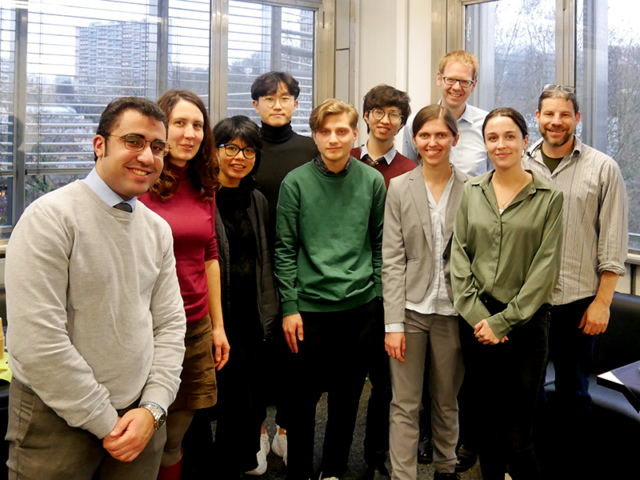End of January 2020, the NCCR Chemical Biology awarded the Best Master’s Thesis prize to Jinmin Liu for his outstanding Master’s thesis. This honour acknowledges the exceptional achievement of a young scientist enrolled in the Master in Chemical Biology programme.

Jinmin Liu, what was the topic of your master’s thesis?
My master’s thesis is about “Exploring tissue-specific responders of lipid-derived electrophiles in C. elegans“.
You did your master’s thesis research in the lab of Yimon Aye at EPFL. How has your perception of research changed during this internship?
The first thing that I learned is that most research is time-consuming. Unlike the laboratory course, influential research requires continuous and serious effort. Besides the experiments, time management, reading papers, and experimental notes are all important during research.
How did the master’s degree curriculum prepare you for this research? What were the useful tools, methods, learnings from your master’s degree curriculum?
You don’t really know if you like it until you understand it well. Before choosing the lab for my master’s thesis, the “Current topic of chemical biology” course gave me a general overview of the cutting-edge research of this field, including some achievements of the NCCR. The rotating internship we had to do during our first semester also helped me a lot, because working in the lab lets me know much more details of the research compared to only visiting the lab website. I was a chemist before this master’s program but during my project, what benefited me the most was the bioinformatic tools that I learned in the optional course – “Elements of bioinformatics” This because I identified during project protein targets and we needed to search our targets in many databases like UniportKB. Information around protein homologs, the predicted functions, and the phylogenic analysis are all based on different bioinformatic tools.
Your work focused on identifying lipid specific responders of lipid-derived electrophiles in C. elegans. What is the relevance in pathology of the responder you identified?
Protein modification by lipid-derived electrophiles (LDEs) is highly relevant to oxidative stress response and several diseases. For instance, in certain neurodegenerative diseases and non-diabetic obesity, the elevated level of LDE-modifications was found. My project was to identify these responders that can be modified by LDEs. Ubh4 – an example of the responders I identified – is reported to play an important role to regulate proteasome activity. The down-regulation of Ubh-4 human ortholog will increase the degradation of proteotoxic proteins. For other responders, we can also study human orthologs for further pathological studies. Furthermore, the mechanism of many covalent drugs behaves similarly to LDE-protein interactions.
What was the most exciting moment during your research in the Aye lab?
I have always enjoyed my research so it is a little bit difficult to answer this question. If the answer must be given I would say that it was when I got the valid mass spectrometry data. These data not only proved that my experiment was successful but also the basis for our next analysis.
What would you do differently if you could start your master’s degree all over again?
I would not change much if starting my master’s degree all over again. Academically, although I made some mistakes, in my opinion, some of them are inevitable. These mistakes can actually help me to improve myself. Maybe I would have spent more time to learn French and to enjoy the beautiful scenery in Switzerland !
What are your plans now?
I am satisfied with my life in the lab. To continue my training and research, I will start a PhD in Prof. Aye’s lab soon. I hope that this project can give us more exciting results. For a long-term plan, I haven’t decided yet. Staying in academia is probably my first choice.
Jinmin Liu obtained his Bachelor Degree at the Peking University, College of Chemistry and Molecular Engineering and his Master Degree in Chemical Biology at the University of Geneva, in collaboration with the EPFL. He did his Master thesis under the supervision of Professor Yimon Aye, EPFL. Besides the Best Master thesis award, Jinmin has received the May 4th Scholarship and the Award or academic diligence at PKU.

Leave a comment
The editors reserve the right not to publish comments or to abridge them.